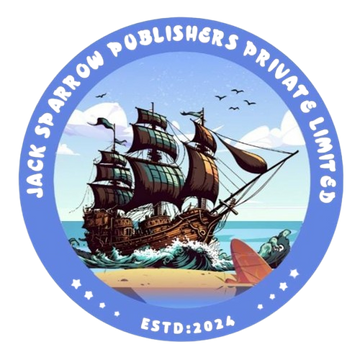Publication Policy

Purpose and Scope
This policy outlines the standards, processes, and ethical requirements for publishing scholarly, professional, and creative works with the Publisher. It applies to:
- Academic journals
- Books and monographs
- Conference proceedings
- Special issues and edited volumes
- Digital and multimedia content
The goal is to ensure integrity, quality, accessibility, and global compliance across all publications.
Core Principles
Our publishing practices are based on the following principles:




















Editorial Policy


Editorial Board members serve as guardians of academic quality and ethical standards.


Initial screening for scope, format, and ethical compliance.
Plagiarism checks using iThenticate/Turnitin or equivalent tools.
Ethical clearance for studies involving human
/ animal subjects (with required approvals).
Additional checks for references, formatting accuracy, and overall quality compliance.


Double-blind peer review is the default process; other models may be used with disclosure.
At least two independent reviewers per manuscript.
Reviewers selected based on expertise and impartiality.
Decisions (accept, revise, reject) are based on reviewer feedback and editorial judgment.


Editorial Board members serve as guardians of academic quality and ethical standards.


Initial screening for scope, format, and ethical compliance.
Plagiarism checks using iThenticate/Turnitin or equivalent tools.
Ethical clearance for studies involving human
/ animal subjects (with required approvals).
Additional checks for references, formatting accuracy, and overall quality compliance.


Double-blind peer review is the default process; other models may be used with disclosure.
At least two independent reviewers per manuscript.
Reviewers selected based on expertise and impartiality.
Decisions (accept, revise, reject) are based on reviewer feedback and editorial judgment.
Publication Process


Authors must submit via the publisher’s online submission system or official email.
Each submission must include:
Cover letter
Manuscript (formatted per author guidelines)
Copyright or license agreement
Conflict of interest statement
Ethical approval documents (if applicable)


Accepted manuscripts go through professional copyediting, typesetting, and proofreading.
Authors review page proofs before final publication.
DOIs are assigned to all published works.


Digital – Online hosting with indexing in relevant databases.
Open Access or Subscription models available.


Authors must submit via the publisher’s online submission system or official email.
Each submission must include:
Cover letter
Manuscript (formatted per author guidelines)
Copyright or license agreement
Conflict of interest statement
Ethical approval documents (if applicable)


Accepted manuscripts go through professional copyediting, typesetting, and proofreading.
Authors review page proofs before final publication.
DOIs are assigned to all published works.


Digital – Online hosting with indexing in relevant databases.
Open Access or Subscription models available.
Ethical Standards


All authors must approve the final manuscript before submission.


Misconduct (fabrication, falsification, duplicate publication) results in rejection or retraction.






All authors must approve the final manuscript before submission.


Misconduct (fabrication, falsification, duplicate publication) results in rejection or retraction.






Copyright transfer or open license agreement signed upon acceptance.
Third-party material must have documented permissions.
Open Access works are licensed under Creative Commons terms.


Participation in LOCKSS, CLOCKSS, Portico for preservation.
Indexing in databases like Scopus, Web of Science, CrossRef.


Correction – For factual/typographical errors.
Withdrawal – For ethics violations before publication.


Support for open data, open peer review, and preprints.


Sponsored content must be clearly labeled.




Copyright transfer or open license agreement signed upon acceptance.
Third-party material must have documented permissions.
Open Access works are licensed under Creative Commons terms.


Participation in LOCKSS, CLOCKSS, Portico for preservation.
Indexing in databases like Scopus, Web of Science, CrossRef.


Correction – For factual/typographical errors.
Withdrawal – For ethics violations before publication.


Support for open data, open peer review, and preprints.


Sponsored content must be clearly labeled.



